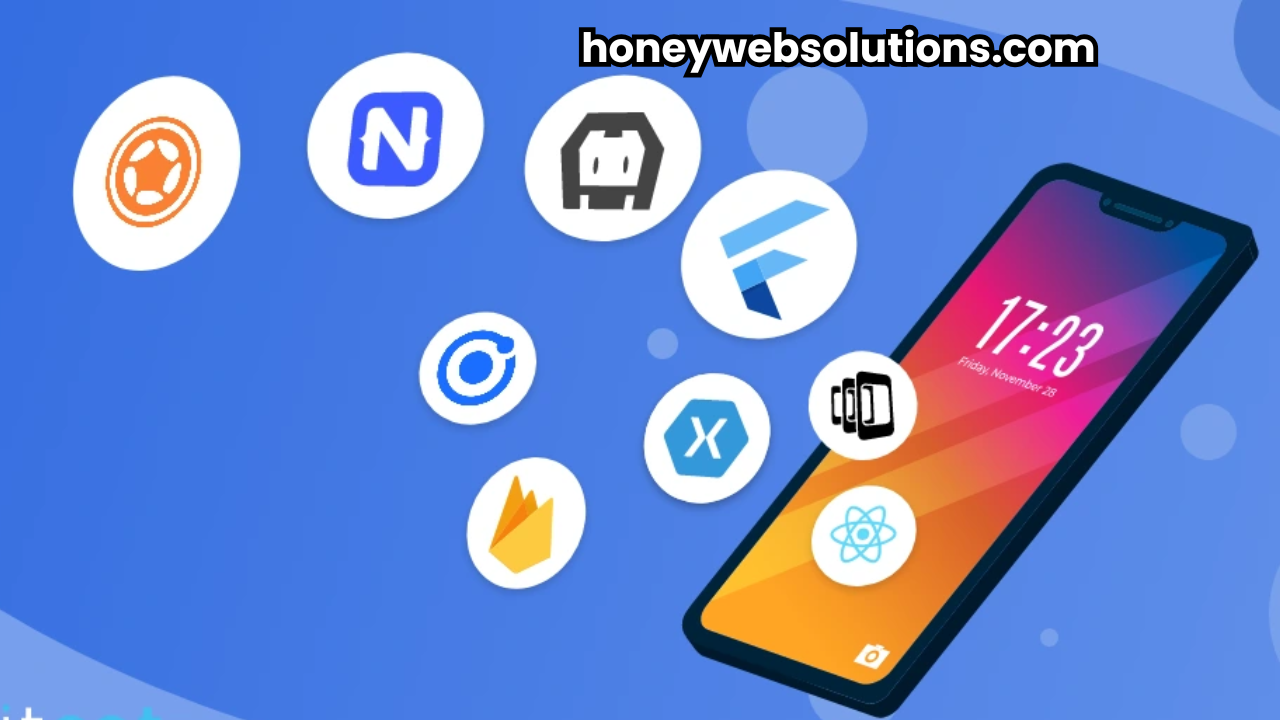

Table of Contents
In today’s fast-paced digital world, businesses and developers require efficient solutions to build mobile applications that work seamlessly across multiple platforms, including iOS and Android. Cross-platform mobile app development tools enable developers to write code once and deploy it across different operating systems, saving time and resources.
If you’re searching for the best tools to build cross-platform mobile apps or wondering which framework is best for mobile app development, this guide will help you make an informed decision. Below, we explore six top tools used by developers to create high-performance cross-platform mobile applications.
Flutter, developed by Google, is an open-source UI software development kit (SDK) that allows developers to build natively compiled applications for mobile, web, and desktop from a single codebase.
React Native, created by Facebook, is a popular framework that enables developers to build mobile applications using JavaScript and React.
Xamarin, owned by Microsoft, is a framework that allows developers to build cross-platform mobile apps using C# and .NET.
Apache Cordova is an open-source mobile development framework that enables developers to build applications using HTML5, CSS3, and JavaScript.
Ionic is a powerful framework for developing cross-platform mobile apps using HTML, CSS, JavaScript, and Angular.
Unity is a cross-platform development engine primarily used for building mobile games and interactive applications.
Choosing the right cross-platform mobile app development tool depends on your project’s requirements, programming expertise, and desired app functionalities.
With the right tool, you can build a feature-rich, responsive, and scalable mobile application that delivers a seamless user experience across platforms. So, analyze your requirements and start developing your next cross-platform app today!
Flutter and React Native are the top choices for most developers due to their efficiency and strong community support.
Cross-platform development is cost-effective and time-saving, while native development offers better performance and customization.
Yes, tools like Kivy and BeeWare allow Python-based mobile app development, but they are less popular than Flutter and React Native.
Unity is the best framework for mobile game development due to its powerful rendering engine and cross-platform capabilities.
Consider factors like performance, ease of use, programming language, third-party integrations, and community support before making a choice.
Are you wondering how to streamline your study plan effectively? Do you feel overwhelmed by… Read More
In today’s world, where the digital revolution accelerates by the second, technology is not just… Read More
When your business runs paid ads across multiple platforms—Google, Meta, LinkedIn, and the rest—it’s easy… Read More
Among many students, are you also dreaming of studying in your favorite destination, America? Many… Read More
The last few years have caused a dramatic shift in the procurement landscape as organizations… Read More
Creating an attractive, professional website doesn't have to break the bank. With strategic use of… Read More